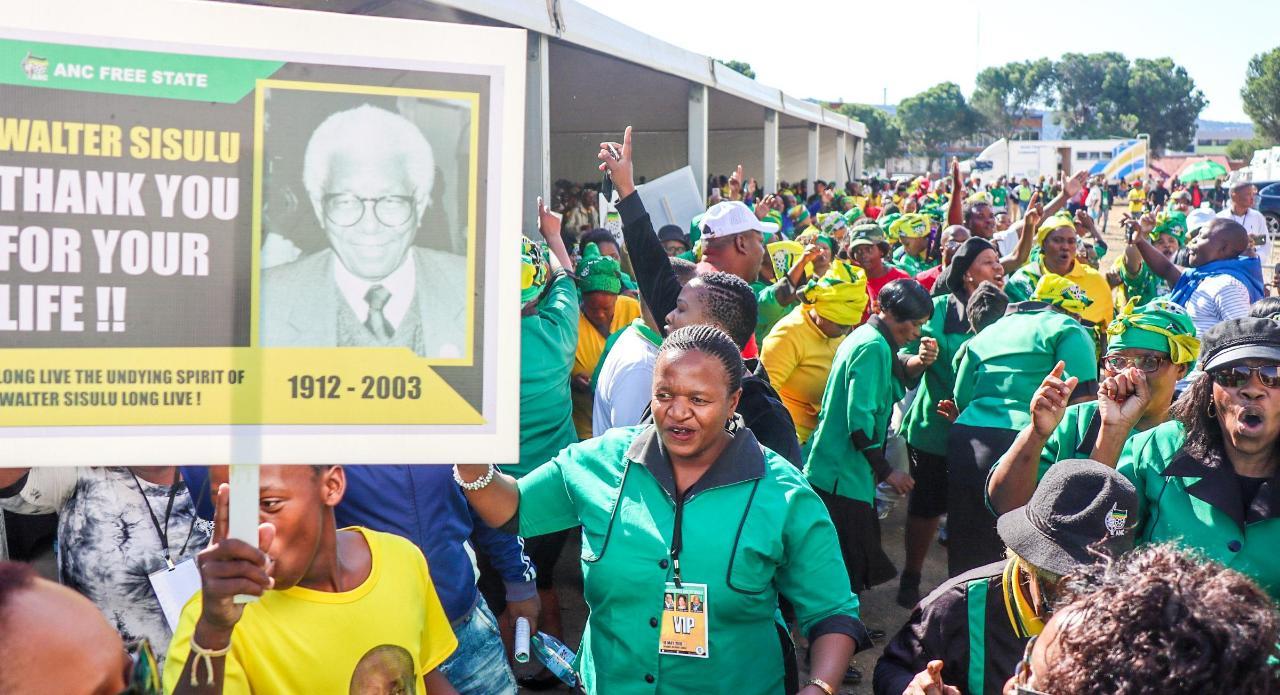Photo Credit: ANC1912.org.za
Historically, the ANC Youth League (ANCYL) has played a crucial role in the party and in the country. However, since being disbanded in 2018 due to a crisis in leadership, the ANCYL has not been able to get back on its feet.
“Renewal of the ANC is tied to the renewal of the youth league,” said one of the members of the new task team set up to revive the league at a closed discussion about the role of the ANC in the current political and economic crisis in the country.
“The political autonomy of the youth league is strategically important,” explained the speaker who believes the ANC does not have the powers to diminish the ANCYL structures – such as turning a national conference into a mere consultative conference – and that its powers derive from the ANC constitution.
The discussion on 18 June was organized by In Transformation Initiative, Democracy Works Foundation, the Hanns Seidel Foundation, the Kgalema Motlanthe Foundation and the Gordon Institute for Business Science.
Reviving the youth league will give a voice to disaffected members of the ANC who see the ANCYL mired in the same factional politics as the mother body, the speaker believes.
It can move the organisation back to being a liberation movement in the true sense of the word and fight for the needs of young people in the country.
Not everyone is convinced though.
“The youth league has to answer on what it offers young people other than policy inertia and then getting caught up in pseudo-ideological battles,” said one ANC stalwart at the debate.
“Can 20th century ideas solve 21st century problems?” asked another participant.
Some called the ANC a party with no vision or imagination, led by “an extractive leadership”.
Others say that precisely the lack of transforming from a liberation movement to a modern political party is what hampers the ANC in moving forward and speaking to a young, urban electorate that has increasingly turned away from the party.
Here lessons from Zimbabwe are instructive, said another ANC member.
The ruling Zanu PF has lost control of major cities in the country because it doesn’t speak to the middle class.
“We must be mindful of this lesson. We’ve lost the black middle class because of the image of being a corrupt party.”
There is also a perception that the ANC, particularly under former president Jacob Zuma has become a “black nationalist, rural party with conservative, traditionalist leadership” – another reason why it will be difficult for the ANC to capture the urban vote.
This narrow African nationalism is “harming the non-racial character of the ANC”.
Ultimately what is lacking is “an audacious vision” from the ANC to drag the party and the country out of the current crisis.
It urgently needs to do more to rid itself of corrupt individuals.
“We sit with criminals and we lack the courage to call them out,” admitted another ANC member.
The party probably needs to reform the way its structures function. One solution to move away from the “sins of incumbency’” and avoid generational “gatekeeping” could be to consider direct elections of the leadership by all members of the party.
It also needs to move with the times and embrace technology. Going online in the Covid-era hasn’t worked for everyone.
“The ANC is in a time warp,” proffered one speaker.
The ANC meanwhile needs to engage more actively with business and its solutions for the country, said one speaker. “The municipalities are a challenge we need to address. So are the professionalization of the civil service and the vulgarization of deployment policies.”
Another ANC stalwart at the debate says he believes the process of renewal in the ANC – a “corruption-tainted party” – is starting to happen. The party is starting to rid itself of corrupt individuals. “The rumblings in the party that you hear are a manifestation of that battle.”
“We’ve prided ourselves as a liberation movement of being committed to democratic processes,” he says.
Ridding the country of poverty and inequality needs strong leadership and a solution that involves both business and labour, he said.
Reversing the trend of a party out of touch with its electorate is, clearly, a momentous task and one that would be crucial to determine the future trajectory of the country.
A final pertinent question from the chat discussion was left unanswered:
“If the ANC improved the competency, integrity and accountability standards for all deployments, would this not result in better outcomes for South Africans, and thus more votes for the ANC?”

